Teenagers Tyler, Zemery and Nollan know the pain of kids staring or bullies commenting about your hands because they are missing fingers and look different. They have endured the frustration of learning to adapt in the world when you have less fingers than the optimal 10.
Or, how difficult it can be to find shoes or run when your feet are shaped differently and have just a few toes. Their missing fingers and toes are just one of the many symptoms they experience because of ectrodactly-ectodermal dysplasia-clefting (EEC) syndrome.
Meeting at Kids Camp
The National Foundation for Ectodermal Dysplasias (NFED) hosts a Kids Camp and Teens program each year at the Family Conference for youth just like them. Tyler’s parents took him to Kids Camp in 2006 so he could meet other kiddos who had EEC.
It was important to them that he understood that he wasn’t alone. Plus, they wanted to learn from our experts and meet other families.
Tyler walked into Kids Camp and was surprised and thrilled to see Zemery, another child with hands like his. The duo became instant friends.
Both boys returned the next year to Kids Camp and were pumped to meet another boy their age, Nollan, who also had EEC.
“I remember how I saw their hands,” Nollan said. “I was just instantly drawn towards them.”
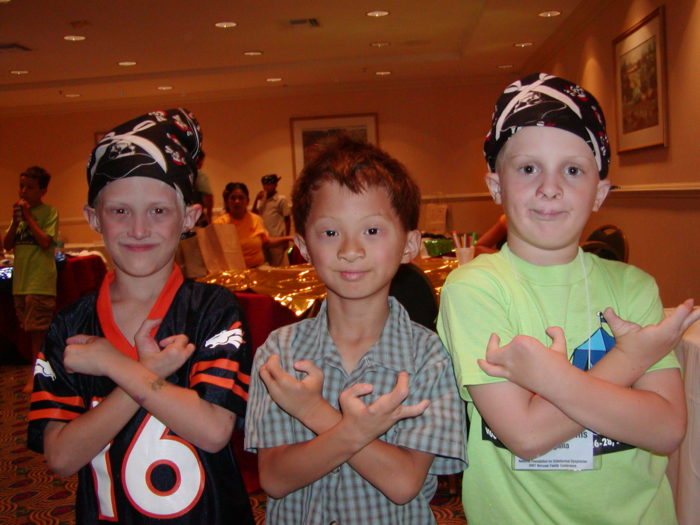
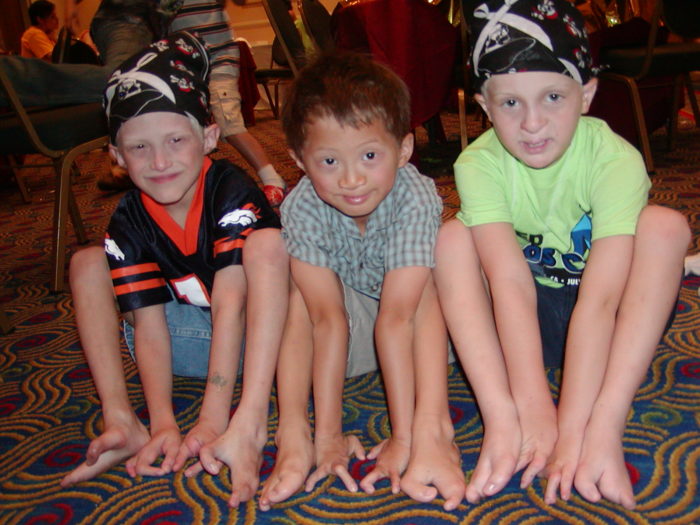
Here are the three amigos at their first NFED Kids Camp all together. It was their idea to pose like this together! It started a tradition they still continue. Left to right are Tyler, Nollan and Zemery.
They dubbed themselves the “three amigos” and became Family Conference regulars. The boys delighted in taking off their shoes and proudly posing with their unique hands and feet for photos. But, mostly, they liked hanging out and being regular kids.



“For years, Tyler called Zemery his best friend because they were close and connected from experiencing the same things with EEC,” Tyler’s mom, DeAnn, said. “They only spent 72 hours together each year but looked forward to it all year long.”
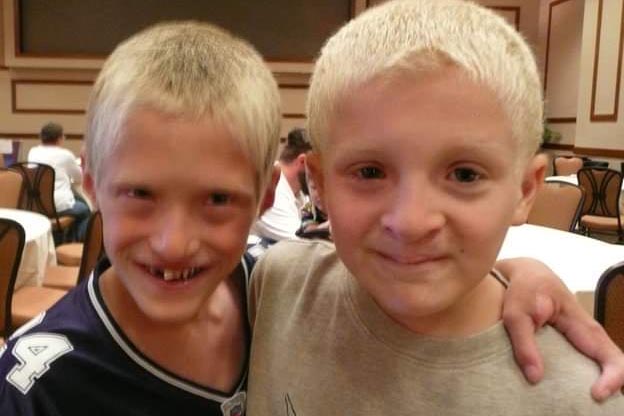
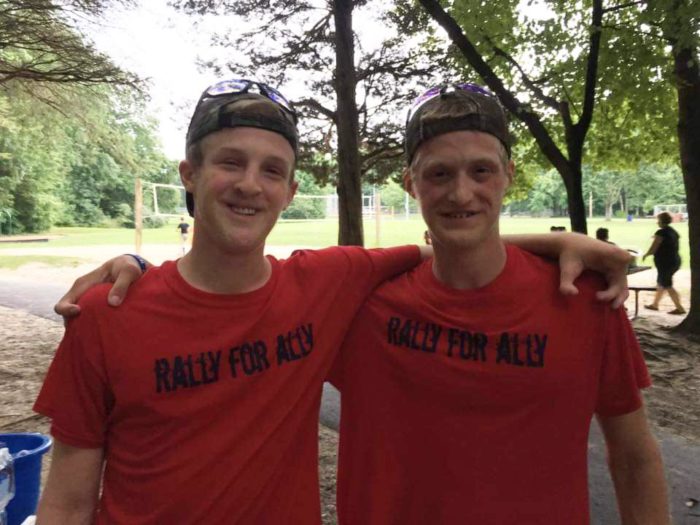
Their unique features definitely bonded them. Living in different parts of the United States, Tyler, Zemery and Nollan stay in touch through social media. But, they look forward to that 72 hours a year when they get to see each other at the Family Conference.
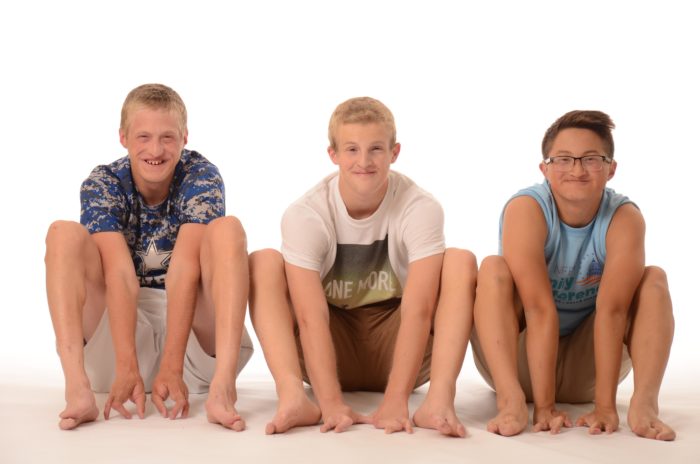
“I keep in touch with them every day,” Zemery says, “mostly through social media. Conferences feel like long-awaited family reunions.”
Powerful Role Models
The three amigos are older now but they still like coming to Family Conference. According to Zemery, the families he’s interacted with at Conferences have been amazing.
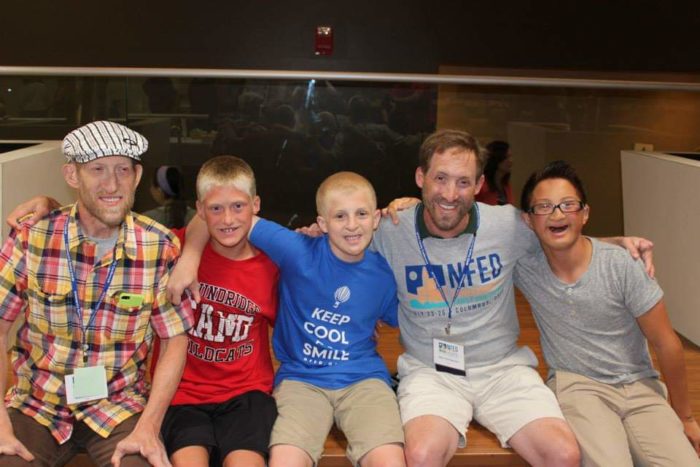
“I have been introduced to older mentors that have my same condition and they have been like role models for me,” Zemery said. “Marc (Steingesser) and Jack (Kriz) are the two older mentors. The connections I forged have not gone away.”
Nollan agrees that meeting older men with EEC helped him know that his future was bright.
“NFED allowed for me to have the knowledge that there are others like me in the world. It gave me a sense of community that I have come to recognize the older I become. In addition to creating a community for me, I have met older people with my syndrome which have helped me to have a clearer sense of my future and what it can become.”
Now the tables are turning and the young men are becoming role models for the younger kids.
“I have been able to help other families by acting as a role model for the younger kids who have been affected,” Zemery, 18, said. “I have also participated in the Buddy Program at the conference and been linked with another affected family. I was able to meet with the family and exchange ideas and ways to cope with symptoms and bullying.
I once met a mother from Florida who gave birth to a child with my exact condition. She asked Tyler and me to sit down with her and answer questions about surgeries and worries to have and not to have. After Tyler and I answered every question she had, we could tell she was a little more assured, almost relieved. That was, in my opinion, my most influential moment.”
Following Their Passion
The three amigos all seem to have the confidence to be their own person and be proud of whom they are.
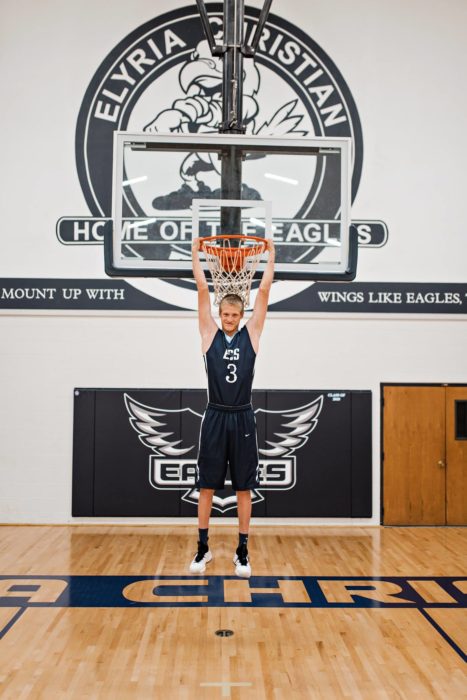
Tyler, 18, loves basketball, basketball and basketball, he says. He has mastered shooting a basketball despite having just three fingers. He easily runs up and down the court, with just two toes on each foot and not being able to sweat. Now, the shooter is living his dream. He’s playing basketball at Sterling College.
.
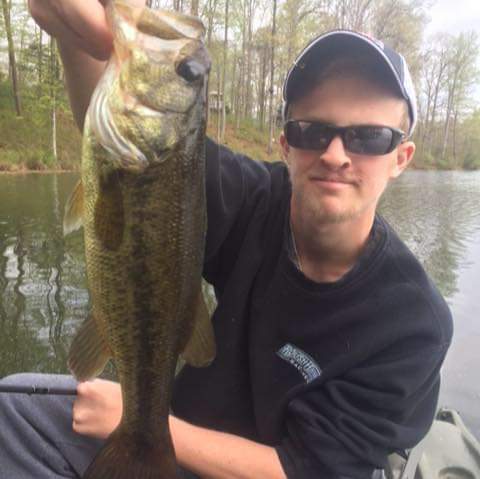
Zemery loves hanging out with friends, fishing, kayaking, tinkering with old antique cars, and playing and coaching soccer. He is majoring in business administration at Northern Virginia Community College.
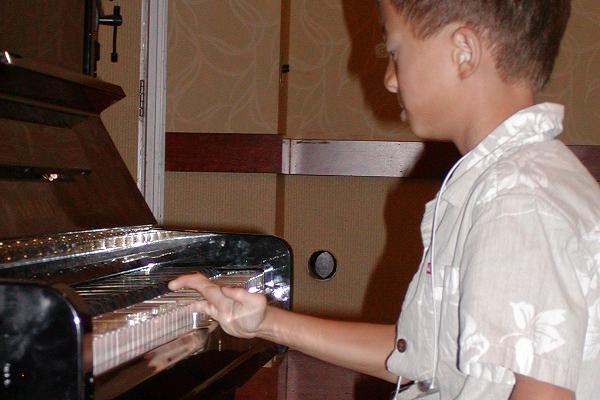
Nollan, 19, loves to relax and to play soccer, frisbee, the piano, video games and running. He attends Fordham University in New York.
Jeanne Wang, Nollan’s mom, says that he consistently surprises them.
“Nollan asked to take piano lessons when he was five years old, and as his mother, I didn’t even know how he would play with only three fingers on each hand. Nollan not only continued to play piano, he takes genuine pleasure in playing and performing for friends and family, and in school performances. We believe in Nollan and we think his future is bright no matter what he chooses to do in life.
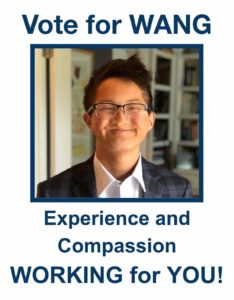
“Instead of shying from attention, Nollan is unafraid to stand out. He ran for and won the election as class representative as a new student in high school. He continued to represent his class then eventually took over as student body president in his senior year.”
Being Bullied for Missing Fingers
While they’re confident now, two of them have endured bullying for having missing fingers and or being different.
“Bullying was a constant struggle for me,” Zemery said. “I would get excluded from games at school, underestimated in sports, verbally and physically picked on because I was the way I was. Coaches would sometimes baby me on playing time and opportunities.
I never let it beat me. I always took it as other people were jealous that I was the way I was, and I was doing better at things then they were. Three fingers and all.”
Nollan also remembers being bullied when he was littler.
“I remember that in kindergarten, kids would bully and torment me, but as I got older and more confident in myself, the bullying went away,” Nollan said.
Tyler was fortunate. He attended a small school where everyone had his back.
Surgeries. Lots of Them.
Another challenge EEC has presented the trio are the many surgeries that are common for the syndrome.
Zemery said, “I have had 25+ surgeries and all were to correct physical anomalies and make quality of life easier. Surgeries repaired my cleft lip and palate so that I could eat and breathe. I had syndactyly separation on hands to better hold and grab things. Eye and ear surgeries to better improve overall functionality. Surgery on my feet to better improve balance and the ability to fit in regular shoes.”
Accoring to DeAnn, Tyler had many of the same kinds of surgeries.
“Tyler has had 27 surgeries for his cleft palate, eyes, ears, teeth, hands and feet,”
For Nollan, “All I know is that I have had a lot (of surgeries). The surgeries that come to my mind are the following: jaw surgery, cleft lip and palate surgery, surgery on my hands and feet to separate the individual fingers and toes, and a lot of ear surgeries.”
What They’ve Learned…So Far
Despite these challenges, the three amigos each possess a strong sense of who they are and what they are capable of.
DeAnn says that Tyler never allowed any symptoms to slow him down or stop him. He doesn’t even look at any of it as challenges. He’s learned that your syndrome doesn’t define you and you can do anything you put your mind to.
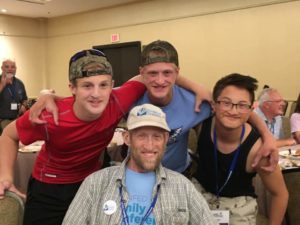
Zemery would agree.
“The first conference we attended I was at the age of three. If there was anything I learned from the conferences, it is to embrace what I’ve been given and keep tabs on my health and the latest research. My experience with ectodermal dysplasia has helped me to overcome struggles. Work hard for what I want and never take anything for granted. I don’t let my condition define who I am.”
According to Nollan, he’s learned a major life lesson in that having ectodermal dysplasia is that you can be more than your syndrome.
“Throughout my life, I have always been scared to feel that my life is defined by my syndrome,” Nollan said. “To counteract this, I have always tried to be more than what I seem.
I have three fingers, but I can play piano. I overheat quickly, yet I have been more active than other people I know. And even though I am different, I am able to connect on a fundamental level just like everyone else.”
Up Next



We are excited to see what these young men are going to achieve in college and beyond. They are all shining examples of what you can achieve and be when you have support from your family…and your NFED family.
We hope they keep coming back to Family Conferences so you, and more importantly, your kiddos, can meet them!
DONATE NOW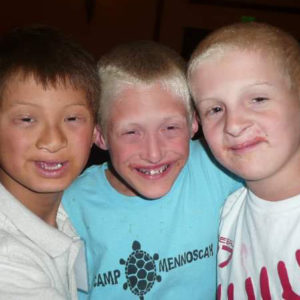
What an inspiring article about these three awesome “amigos!” NFED has been an incredible resource for so many families. Thank you for taking the time and making the effort to tell this story! It is only one of many. Proud to be part of this organization!😎❤️😎
Hi, Frankie. You have been a loving and supportive grandma to Mr. Tyler. He’s lucky to have you in his corner. Thank you for the kind words and we’re thrilled to have you in our NFED family, too! ~ Jodi, Director, Marketing and Communication
What an inspiration they are and will continue to be to others. They are a blessing to their families and communities.
Hi, Arlys. We absolutely agree! ~ Jodi, NFED, Director, Marketing and Communications